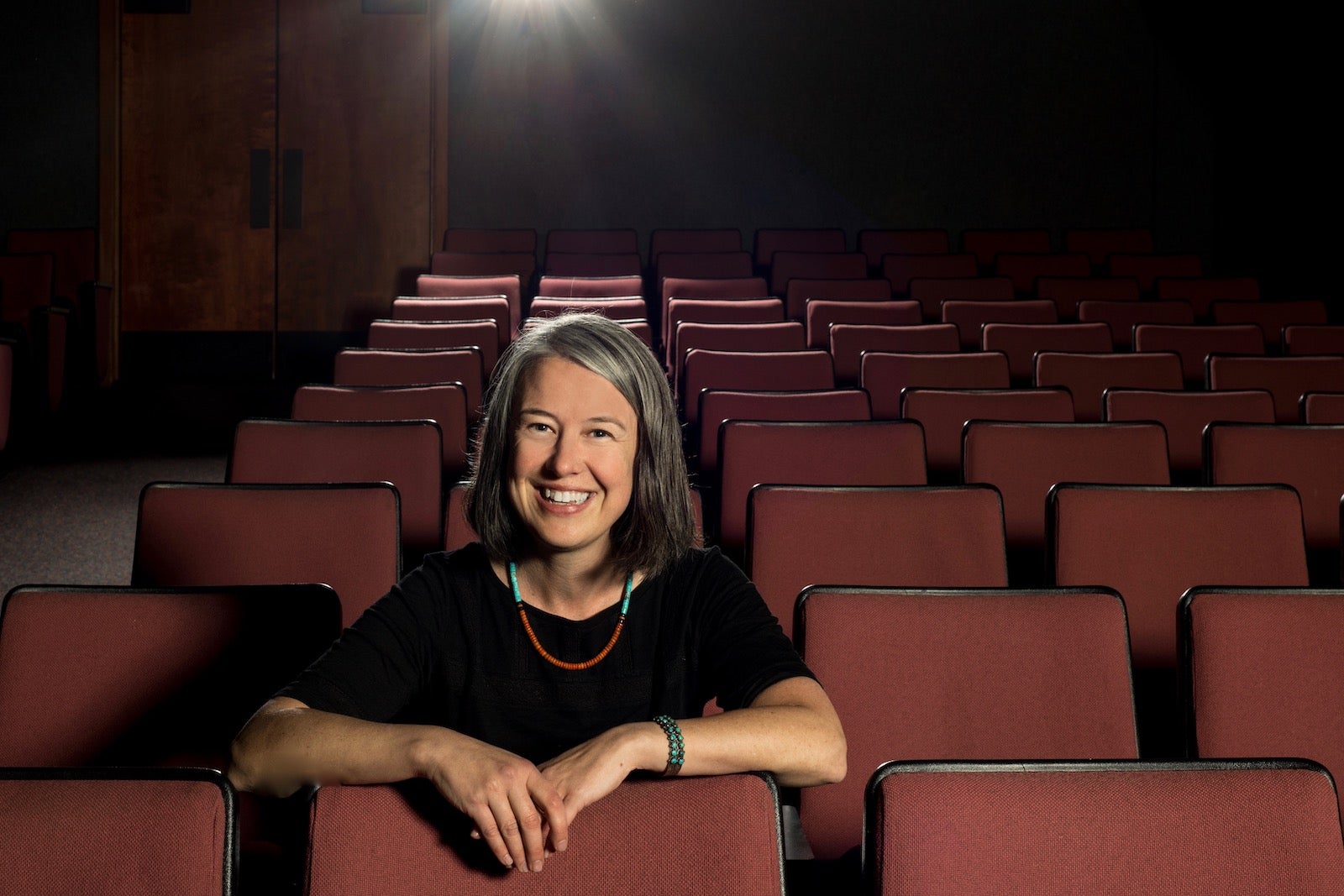
Mariah Devereux Herbeck, a professor of French and French section head in the Department of World Languages, recently presented a paper at the 117th annual conference of the Pacific Ancient and Modern Language Association (PAMLA) in San Diego.
In her paper, “Collaborator or Resister? The French Female Concierge in Gérard Landrot’s novel, Tout autour des Halles quand finissait la nuit,” Devereux Herbeck examined the novel’s depiction of a French female concierge during World War II.
As means to contextualize Landrot’s novel, Devereux Herbeck presented scenes that portray the “typical” polar opposite concierges from Rose Bosch’s 2010 film “La Rafle” (The Roundup), and Gilles Paquet-Brenner’s 2010 “Elle s’appelait Sarah” (Sarah’s Key). While these films portray the female concierge along traditional lines as either an evil collaborator, handing Jewish residents over to the Gestapo, or a courageous resister, protecting tenants from deportation, Devereux Herbeck argued that Landrot’s novel presents an exception to the rule with a nuanced portrayal of the novel’s main character and narrative agent, Mimine.

Jason Herbeck, a professor and department chair in the Department of World Languages, also presented at the conference. In his paper, “Haitians in Cars Getting Nowhere: The Urban Crisis of (Social) Mobility in Contemporary Haiti,” Herbeck examined the function, status and commercial appeal of cars in the nation’s capital as articulated in two short stories and two novels by Haitian writers Yanick Lahens and Évelyne Trouillot.
Situating the four works at the by and large unexplored critical intersection of popular culture and postcolonial studies, Herbeck explored the driving forces – social, racial, economic and political – behind the struggles for and obstacles to upward mobility in Port-au-Prince, Haiti, today, as well as the frustrated and often unexpected collisions that result within and between communities when individuals find themselves veering uncontrollably into one another’s paths.